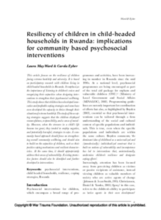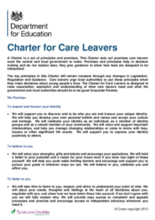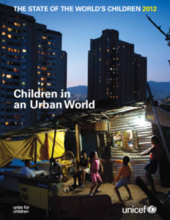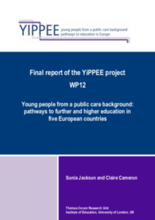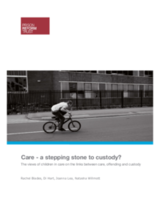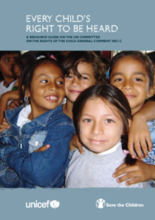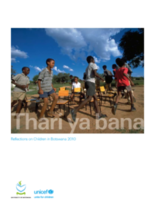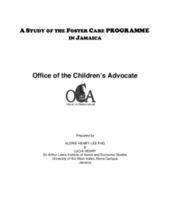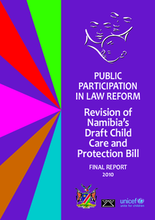Displaying 271 - 280 of 377
Helping families and their kin develop care plans for orphaned and vulnerable children was the objective of the family group conferencing (FGC) training that took place in Guatemala City from July 10-12, 2012. This family preservation approach for developing strategies to prevent the institutionalization of children emphasizes the strengths of families and their capacity to solve their own problems and develop their own care plans.
Based on participatory research with children living in child headed households in Rwanda, this article focuses on the resilience of children facing extreme hardship and adversity. While the research focuses on child headed households, this study’s findings can be considered more broadly for interventions for other vulnerable children to support their development of innovative coping strategies.
This Charter lists the promises that care leavers want the central and local governments to make. The Charter for Care Leavers is designed to raise expectations, aspirations and understanding of what care leavers need and what the government and local authorities should do to be good “Corporate Parents.”
This report provides data on children living in urban settings, including statistics, conditions, and personal testimonies. The report also includes UNICEF’s recommendations for policy regarding children in urban settings, working with this population, and for future action. Sections that are relevant to children’s care include: children living and working on the streets, migrant children, urban emergencies, and many more.
The first comparative study of young people who have been in state care as children and their post-compulsory education, was undertaken by a team of cross-national researchers.
The main aim of this research is to enhance the understanding of why children in care in the UK are disproportionately likely to end up in the youth justice system or in custody.
This resource guide is based on and elaborates the UN Committee on the Rights of the Child General Comment No. 12, ‘The Right of the Child to be Heard.’ The aim of this handbook is to try to make easier the task of governments in moving that agenda forward.
The papers presented here bring together research and reflections on children’s issues in Botswana with a particular section dedicated to child protection and the needs of children without parental care
Findings of a study aimed to determine the effectiveness and the efficiency of the Foster Care Programme, assess the treatment of children in Foster Care, assess the adherence to child rights in the provision of Foster Care, provide policy direction for the enhancement of the Programme.
This document provides a summary of the various forms of consultation undertaken during the revision of the Child Care and Protection Bill. It provides a basis for future law reform processes and presents an excellent example of how to include children and the public in the law-making process.


